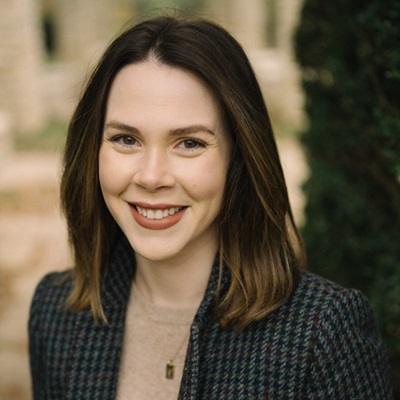Women and girls have made incredible contributions to science, technology, engineering, and mathematics (STEM), yet barriers and stereotypes have historically limited their participation. On International Day of Women and Girls in Science, we celebrate the achievements of those who have paved the way, recognize the critical role women play in advancing innovation, and encourage more young women to pursue careers in STEM. We’re highlighting Ruan’s Director of Data & Analytics, Sarah Merwine, and her experience as a woman in science.
Can you tell us about your background and what inspired you to pursue a career in science?
From a young age, I was drawn to the sciences because I loved problem-solving—there was always a puzzle or formula to solve. My academic journey was significantly influenced by one of my math professors and advisors, whose mentorship inspired me to delve deeper into mathematics and computer science. This guidance led me toward a career in analytics. To further my education, I pursued graduate studies at the University of Iowa, earning a Master of Business Administration and a Master of Business Analytics.
Today, as the Director of Data & Analytics at Ruan, I lead our data, analytics, and AI/ML strategies. My journey in science has been driven by a love for continuous learning and tackling complex challenges.
What challenges do you think women and girls face in pursuing science careers? How can they overcome these barriers?
Challenges can begin early for women and girls in pursuing science careers. Unconscious biases and stereotypes often suggest that science is more suited for boys, which can discourage girls from taking an interest in these subjects and may lead them to doubt their abilities to succeed. It’s crucial to actively support girls’ interest in science through engaging activities, providing access to resources, and offering encouragement. As a mother of a young girl, I want to ensure these opportunities are available to her when she starts school.
Challenges can also persist in the workplace, especially in traditionally male-dominated fields. In environments that are not inclusive, women may face additional barriers, such as a lack of support, mentorship, and opportunities for advancement. To overcome these barriers, it’s important to create inclusive and supportive workplaces that value different experiences and provide equal opportunities for all.
Why do you believe women’s representation in science is important?
Women’s representation in science is essential because it brings diverse perspectives and ideas to research, leading to more innovative solutions. It also provides role models for young women and girls, demonstrating that a career in science is both achievable and rewarding. Promoting equity by ensuring women are represented helps break down gender barriers and creates a fair working environment. Ultimately, greater representation of women in science challenges gender biases and fosters a more inclusive culture that values everyone's contributions.
What advice would you give to encourage young girls to pursue careers in STEM?
Remind them that they are capable and resilient. Encourage them to understand that building expertise in STEM, like anything worthwhile, takes time and effort. By being persistent and determined, they can achieve what they set their minds to. Let them know that their contributions are valuable and that they have the potential to shape the future through their work in STEM.
What do you see as the future for women in science? Are there any emerging trends or opportunities that excite you?
One trend I’ve been reading up on is the growing recognition of the importance of interdisciplinary approaches in science. This is exciting because it’s opening up new opportunities for women to collaborate across different fields. By bringing diverse perspectives and expertise together, complex challenges can be tackled more effectively. It’s encouraging to see how this approach brings about innovation and creates a more inclusive environment for women in science.